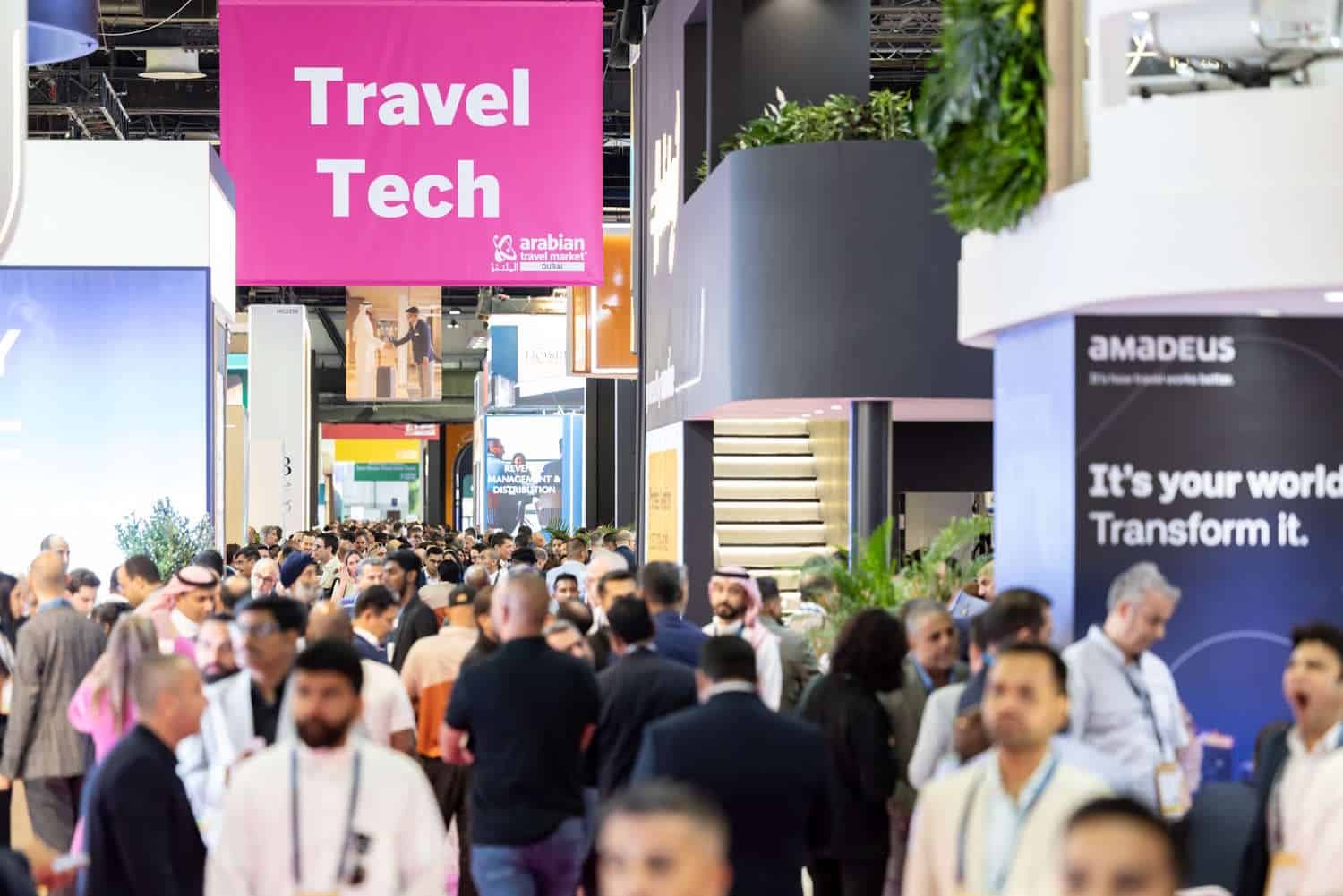Ah, the 1990s.
Remember what it was like? Bill Clinton was in the White House. “Titanic” was
in movie theaters. Every kid wanted a Tamagotchi.
It was also a decade when
look-to-book (L2B) ratios—the number of shopping and pricing requests compared
to the actual number of tickets sold—was around 10:1. Mobile phones were in
their infancy, and there was a newfangled thing called e-commerce.
Travel companies did
not realize how lucky they were. Since then, L2Bs have skyrocketed, and the
cost of serving shopping requests has gone north with that.
Direct website
bookings, as opposed to going through a travel agency, and the emergence of
large-scale metasearch platforms and online travel agencies have driven many of
these increased shopping visits but with no corresponding increase in bookings.
The advent of direct
connects and APIs has seen the number of requests soar too.
Subscribe to our newsletter below
“In the NDC world, a
number of factors have seen volumes increase,” said Madhavan Kasthuri, head of global solution engineering at Sabre.
“The first thing airlines
want to do is dynamic pricing. The name says you’re going to have an offer
that’s valid for a very short duration and because it’s available for a
generation of time, you cannot cache it. The second reason you can’t cache it
is because it’s a personalized offer—an offer that is made for person X might
not be relevant to person Y.”
In a piece for PhocusWire published in March, consultant
Sebastien Gibergues, formerly VP of digital search with Amadeus, wrote that L2Bs are now more like 20,000:1.
Distribution systems
have long employed mechanisms to reduce unnecessary system calls and improve
response times.
Caching, in
particular, has been used to manage predictable or repeated search pattern so
that duplicated or wasteful queries are avoided.
However, L2Bs will
soon surge further, thanks to agentic artificial intelligence (AI).
“Soon, instead of
users performing 10 searches on a given day to plan their next vacations, they
will delegate the task to their AI assistant. AI operators trained on how to
use popular travel sites will continuously scan metasearch platforms for deals,
potentially executing 100+ daily searches per user—or will it be 1,000+? This
could push the look-to-book ratio beyond 200,000:1, as early as this year,” Gibergues
wrote.
With this shopping
tsunami on the horizon, travel companies need to be ready to ensure their costs
do not balloon.
Sabre’s Kasthuri said the company is seeing a real shift in how travel content is being queried.
“Agentic AI brings a
different rhythm to search—more frequent, more automated and often without the
same intent signals that human users provide. That has clear implications for
distribution platforms, particularly in terms of system load and look-to-book
ratios.”
“Where things get more
complex is when personalization comes into play,” he said. “In those scenarios,
the traditional cache model has limits. That’s where machine learning becomes
more relevant—not just to personalize results but to reduce noise by
anticipating what matters most to the traveler. It’s a smarter way of managing
volume without defaulting to brute force.”
Using AI
If AI Is the problem,
it can also be the solution.
“We are actively
extending our cache technology, but we are also using AI itself to better
manage calls to that cache,” Kasthuri said.
“The cache is nothing
but a repository of offers. The cache should have the intelligence to
constantly go through the millions of offers that are available in its store
and figure out which have expired. This clean-up process has to be done in such
a way that the airline is not hit with traffic at a single point in time. So
the idea is to avoid peaks of traffic on the supplier, and here is where there
is another layer of intelligence which figures that out.”
According to Kasthuri,
another AI-related factor is also playing into the increase in L2Bs.
“We are also going
through a phase where there is going to be a lot of experimentation with AI.
You’ll find a lot of startups creating AI-powered conversational user
interfaces. That is creating a surge in traffic,” he said.
People will stop looking if they are in no way satisfied. I think we will eventually be charged for shopping, as it is entertaining just to shop.
Mat Orrego, Cornerstone Information Systems
Bryan Phelps, CEO of
digital marketing agency Big Leap, said, “It’s kind of the Wild West. You have 16-year-olds building AI
agents now.”
Mat Orrego, CEO of
Cornerstone Information Systems, said that increased L2Bs may may result in the
whole ecosystem shifting.
“People will stop
looking if they are in no way satisfied. I think we will eventually be charged
for shopping, as it is entertaining just to shop,” he said.
He may be right.
In July, Cloudflare,
which provides network services to improve the availability and reliability of
websites, announced a new initiative called “pay per crawl,” currently in beta.
The system is based on
something called HTTP response codes 200 and 402, which the company calls a
“mostly forgotten piece of the web.”
It would work like
this: Each time an AI crawler requests content, the website responds with either
a present payment intent via request headers for successful access or receive
a 402 payment required response with pricing. Cloudflare would act as
the merchant of record and provides the underlying technical infrastructure.
The company said, “We
believe your choice need not be binary—there should be a third, more nuanced
option: You can charge for access. Instead of a blanket block or uncompensated
open access, we want to empower content owners to monetize their content at
Internet scale.”
A key challenge for travel
brands is actually recognizing AI traffic in the first place.
Big Leap’s Phelps said, “Part of the challenge
right now is that AI agents show up in Google Analytics in different ways, and
it may not show up at all because it doesn’t execute JavaScript and doesn’t
trigger the analytics tag.”
Even then, there are signs, he said.
“We often find that an AI agent
looks a little different than a typical visitor. They might be using some older
browser or an AI-dedicated browser. So, although we cannot fully 100%
accurately detect them, we will be able to segment a little bit to separate
traditional human traffic from bot traffic.”
The new normal
Phelps is clear on one
thing: People need to change their view of normal.
“We have heard straight from
Google that everybody from a marketing and search world needs to reset their
expectations. It’s just not going to be the same,” he said.
Another development is a
proposed standardization initiative for guiding AI bots on how and whether to
explorer websites for training their models and giving access to content to
agentic bots.
Websites would share an llms.txt
file, similar to the robots.txt file, which would provide AI bots with
structured information about a website, enabling them to better understand and
interact with the site’s content.
We have heard straight from Google that everybody from a marketing and search world needs to reset their expectations. It’s just not going to be the same.
Bryan Phelps, Big Leap
T2Impact’s Timothy
O’Neil Dunne, who is outspoken on the hype around AI in travel, has said to
whoever will listen that he believes that AI will “not result in any more
bookings.”
If the costs of
looking and shopping are going to increase, that could cause huge problems,
particularly if the costs of using AI services are added on top of Global
Distribution System fees.
“The real shock is coming—not
in hallucinated itineraries, but in runaway pass-through costs,” said
Cornerstone’s Orrego. “Every chatbot interaction, dynamic fare quote or agentic
approval runs on cloud infrastructure, and that meter is running.”
He added that some
suppliers are already recognizing this.
“United Airlines recently introduced a penalty
model for agencies that scan more than they book through NDC. Why? Because
every AI interaction comes with a bill. AI-driven personalization and dynamic
pricing carry real infrastructure costs.”
AI may also have
another knock-in effect on L2Bs.
“If AI is about creating time, then we have to
allow all the efficiencies that AI will deliver to be adopted. Once humans have more time, they will travel
more. I also think that the definition of travel will become broader once
we invent other ways to experience our need to explore,” Orrego said.
So, with looking potentially
increasing sharply, more bookings may—eventually—start to follow. And with all
that extra leisure time, we can use it to watch reruns of “Friends” and
remember the golden era of the 1990s.





































You must be logged in to post a comment Login